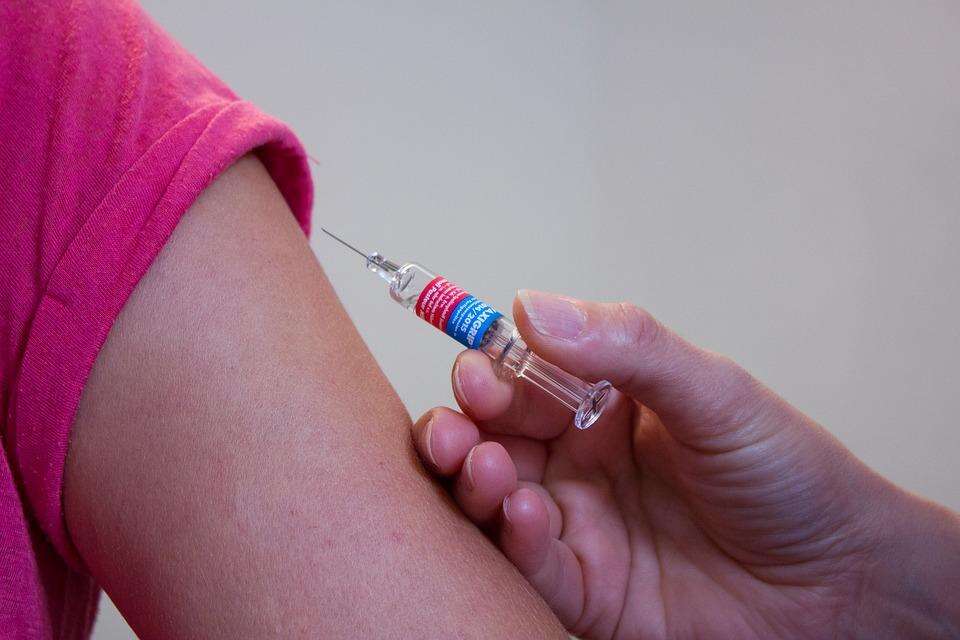The 6 Most Important Vaccines: You Must Know About


All of us with babies are always concerned about vaccinations.
From the very time a baby is born, the administration of vaccinations begins. By the time the kids are in kindergarten, they will have received the Hib (Haemophilus influenza type b vaccine), DTaP (diphtheria, tetanus, and pertussis vaccine), IPV (inactivated poliovirus vaccine), PCV (pneumococcal conjugate vaccine), MMR (measles, mumps, and rubella vaccines) and all the three Hepatitis B vaccinations.
With the growing body of research, newer vaccinations are now available in the market. But, does your baby need all of these?
Well! Some of these vaccinations are a definite must!
In this article, we detail the six most essential vaccinations that are an absolute must for administration to your baby without fail.
1. Varicella (Chickenpox) Vaccine
The chickenpox vaccine is a vital vaccine to safeguard children against the occurrence of Chickenpox by building resistance against this prevalent disease that may, in some cases, even lead to severe conditions such as pneumonia and bacterial infections. The varicella vaccination is usually administered to healthy children in 2 doses, preferably the first between the ages of 12 and 15 months and the other between 4 and six years. Though this vaccination is safe, in some cases, it may cause mild side effects such as low-grade fever, swelling and redness at the site of the injection and rashes.
Some rare side effects could include meningitis, seizures and unilateral paralysis of the body. However, the occurrence of these is a rarity.
2. Rotavirus Vaccine (RV)
The Rotavirus vaccination is recommended in children in 2-3 does at 2, 4, and six months from birth. This vaccination inoculates the baby against a highly contagious and fatal virus strain (Rotavirus) that can cause severe levels of diarrhoea among infants and young kids. Often associated with high-grade fever and severe vomiting, rotavirus infection, if left untreated can cause severe dehydration and even prove fatal. There are two approved Rotavirus vaccinations namely Rotarix and RotaTeq. The administration of the vaccine is often associated with mild side-effects such as temporary diarrhoea and vomiting, fever, irritability and loss of appetite, that tend to go away by themselves.
However, research suggests that babies with known allergic reaction to this vaccine or those with severe combined immunodeficiency (SCID), blocked bowel conditions such as intussusception and other immune problems should not be given this vaccine.
3. Hepatitis A vaccine
Hepatitis A is an acute liver disease that is associated with severe symptoms such as stomach ache, jaundice, fatigue and nausea. Though this doesn’t typically develop into a chronic condition, this disease caused by the Hepatitis A virus, if left untreated can lead to complications in babies. Thus, it is recommended that all babies between the ages of 1 and two years must get vaccinated against this virus strain. The vaccine includes two shots, 6-18 months apart.
Though a relatively safe vaccine, it may at times result in mild side-effects that include soreness around the injection site, fatigue, loss of appetite and headache. Though rare, in some cases, there may be severe side-effects such as trouble breathing, fast heartbeat, facial swelling, Guillain-Barré syndrome and thrombocytopenia (low platelet count), that require immediate medical attention.
4. Meningococcal vaccine (MCV)
The next vaccine that is a must is the meningococcal vaccine that inoculates the baby against the deadly and highly contagious meningococcal disease called meningitis. Caused by a bacterial infection, this condition leads to the inflammation of the protective layer surrounding the brain and spinal cord, ultimately leading to blood poisoning. The meningococcal vaccine is typically given to children between ages of 11 and 18 years in either a single or double dose of Menactra. Though relatively safe, administration of this vaccine is often associated with mild side-effects such as pain, redness and soreness at the injection site, headache and fatigue.
5. Human papillomavirus vaccine (HPV)
The Human papillomavirus vaccine (HPV) is typically recommended for girls between the ages 11 and 12 (up to 26 years) to safeguard against the Human papillomavirus that passes through genital contact and is a leading cause of vaginal, cervical and vulvar cancers in females. It is also recommended in boys in the same age group to inoculate them against the HPV infection that is known to cause genital warts, and penile, anal and throat cancers in males. Gardasil 9 is the only vaccine available for HPV vaccination currently.
Though side effects are rare, in some cases mild side-effects such as pain, soreness and swelling at the site of injection, nausea, headaches and dizziness are common. In rare cases, serious side effects such as blood clots or muscle paralysis have also been noticed.
6. Tdap booster
Though the Tdap vaccination is given at the time of birth, it is essential to follow up the initial dose with a Tdap booster to ensure complete immunisation against diphtheria, tetanus and pertussis. This vaccination comprises a single dose of Boostrix or Adacel after ten years of age (till 64 years).
The Takeaway
The vaccines described above are proven to make a big difference in the prevention of frequent and often complicated diseases. A part of the success stories for the healthcare industry in their fight against these diseases, these vaccinations can help your children lead a healthy childhood and safe adulthood.
Medical Disclaimer: The information and reference materials contained here are intended solely for the general information of the reader. Patients and consumers should review the information carefully with their professional health care provider. The information is not intended to replace medical advice offered by physicians. You should consult your physician before beginning a new nutritional or fitness program.
.jpg)
